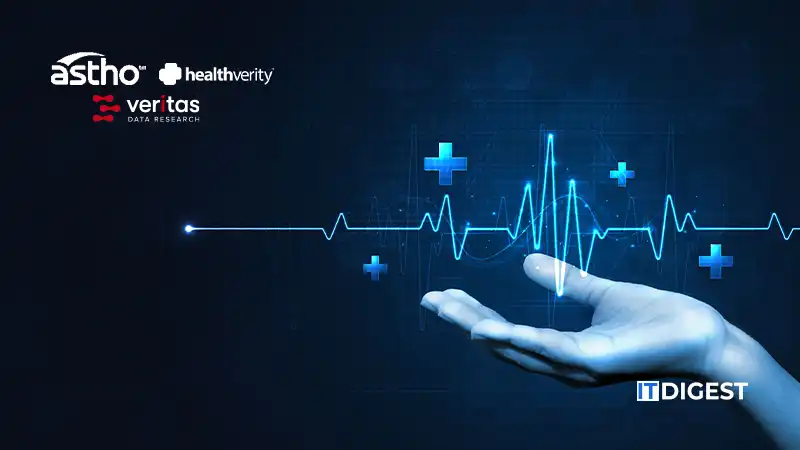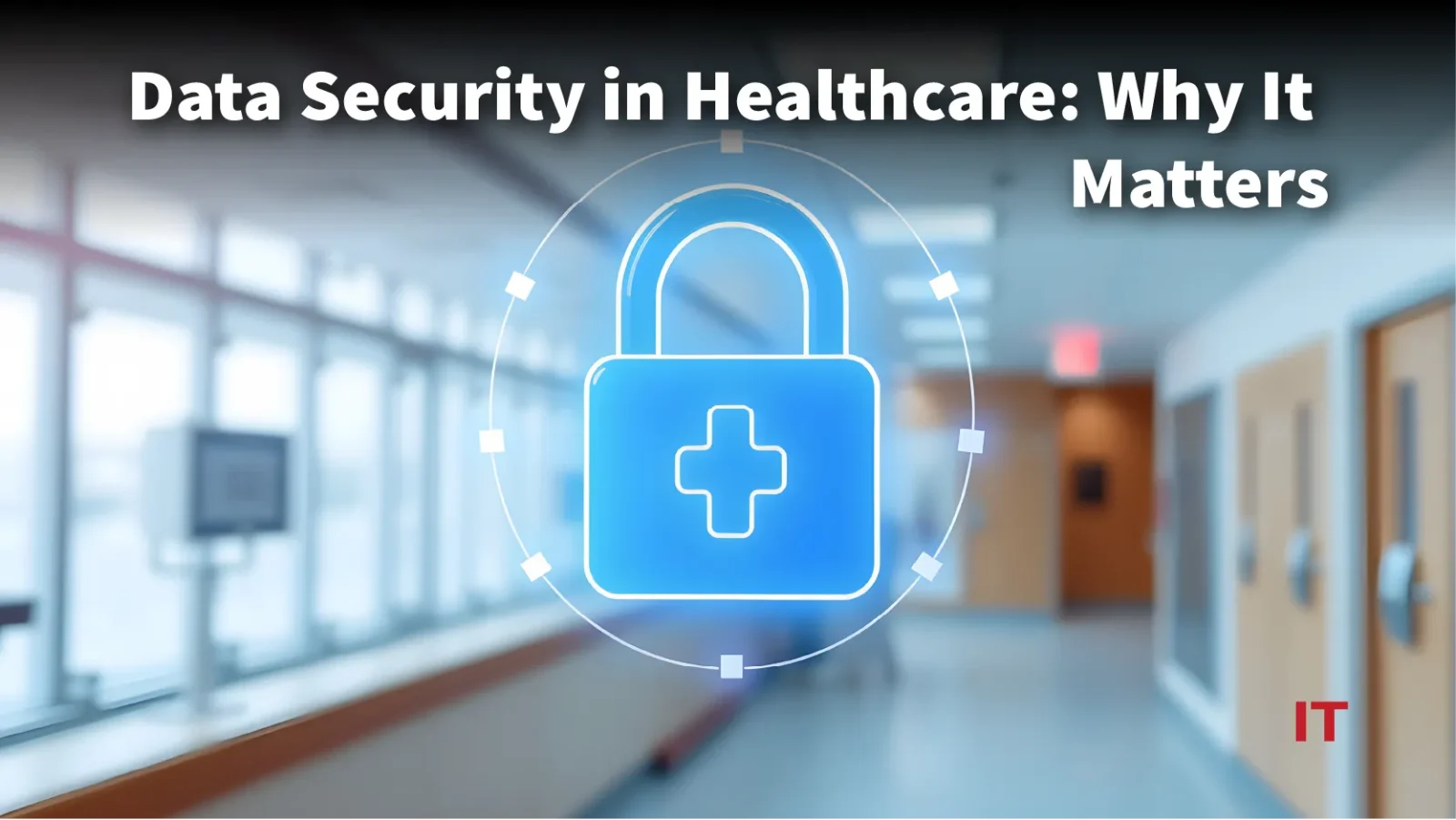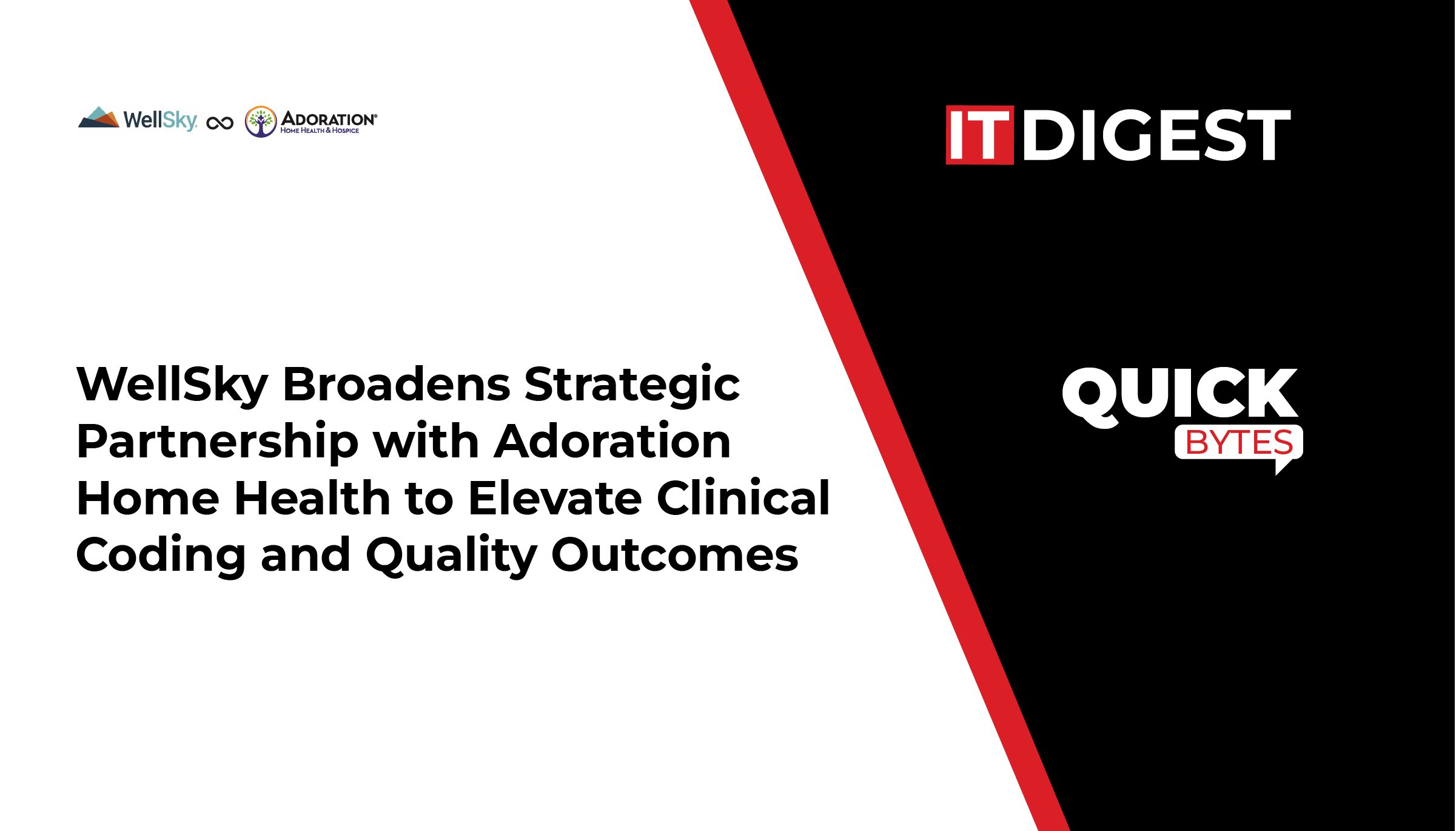Today, the healthcare sector accounts for over 30% of the volume of data in the world. What are the key things to understand about data security in healthcare? What makes data security crucial?
Preserving the integrity of their clients’ confidential information is a top priority for a wide range of industries. For example, banks prioritize the security of personal data in order to safeguard the funds that their clients have entrusted to them. Similar data security procedures have been used by colleges and universities to guard against account hacking.
Since there is an increasing amount of data breaches, protecting sensitive information has become more important. This is particularly evident in the medical field.
Given the increase in cybercriminals’ search for Protected Health Information (PHI), it is more crucial than ever to ensure data security in the healthcare industry. In actuality, from January to June of 2023, over 300 incidents of 500 records or more involving healthcare data breaches were documented. Let’s find out more about its specifics.
What is Data Security in Healthcare?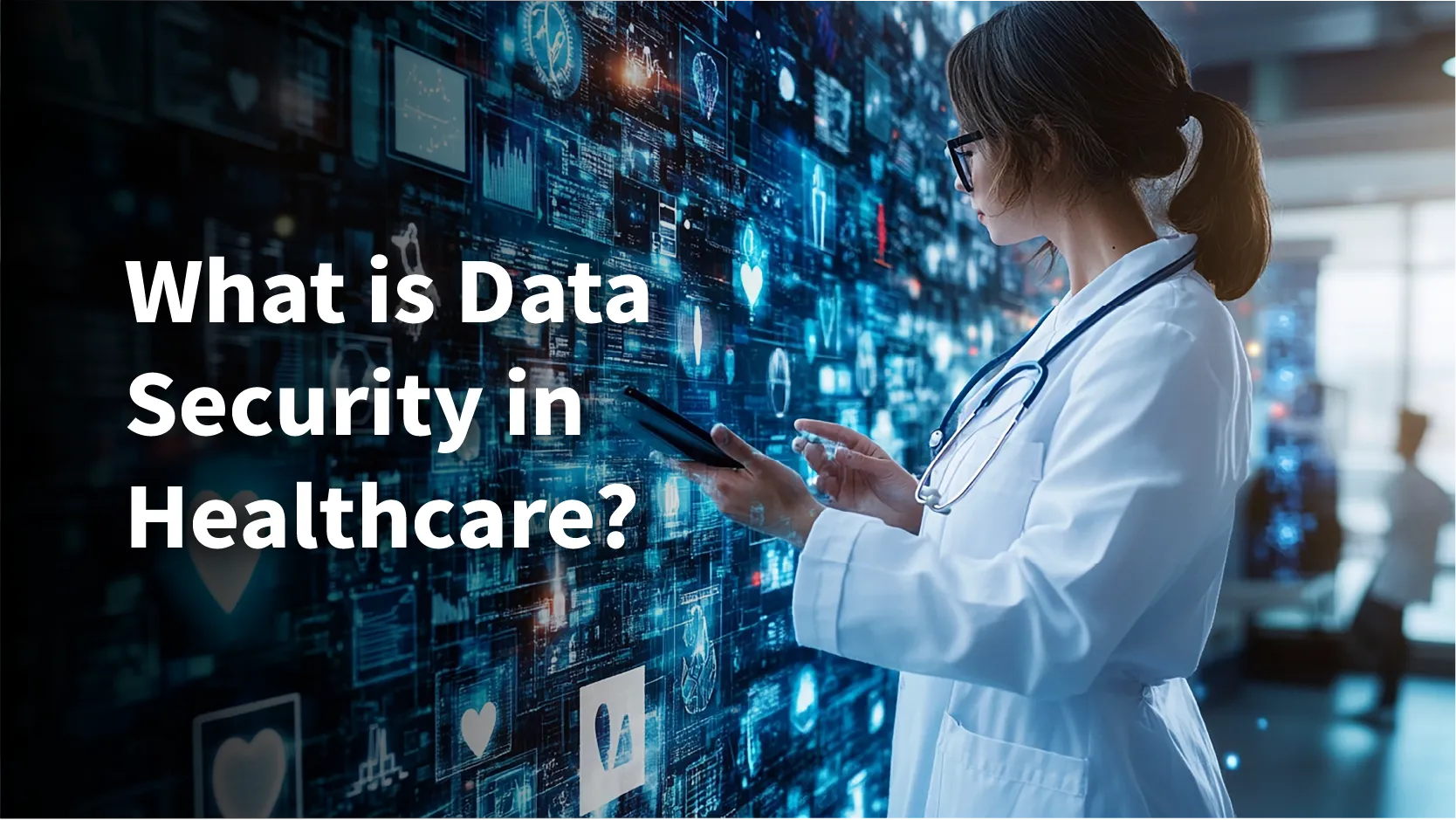
Healthcare data security pertains to safeguarding the information, computing systems, and networks utilized by healthcare organizations and providers. Regulations under the Health Insurance Portability and Accountability Act (HIPAA) are a major force behind healthcare data security. These guidelines offer broad guidance on the handling of private medical data.
Importance of Data Security in Healthcare
Innovation in healthcare technology leads to an increase in the number of resources and apps used by companies, as well as the storage of more patient data. Because of this, these apps exchange personal health information, increasing the possibility of unauthorized access to records and calling for a more thorough approach to data security. Numerous pieces of personal information, such as medical histories, diagnoses, and treatment plans, can be found in patient records. Inappropriate use of this information may result in identity theft, insurance fraud, or even a breach in patient care.
Additionally, cybercriminals view healthcare firms as their primary targets. The risk of data breaches has increased dramatically with the growing usage of networked systems and electronic health records (EHRs). Almost 180 million people have been impacted by the top 20 biggest data breaches of the past ten years. 80% of those breaches were the result of IT problems or hacking. Strong security measures must therefore be in place to protect patient privacy and sustain public confidence in the healthcare system.
Potential Risks in Healthcare Data Security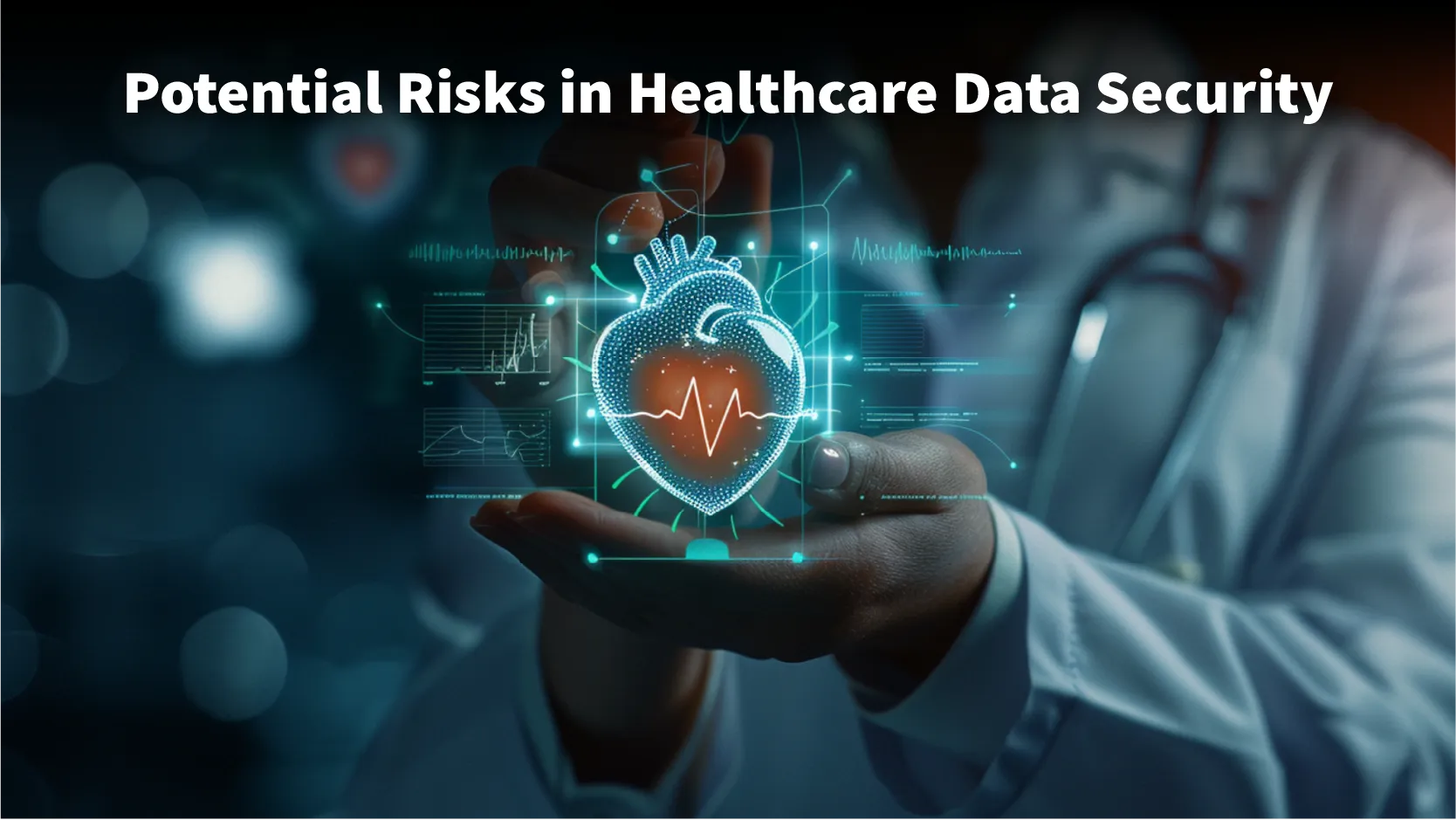
The following are the top seven risk factors linked to data security in healthcare:
1. Operating with outdated/legacy systems
There are frequently unpatched security flaws in outdated systems. This is due to the possibility that the manufacturer has stopped providing security updates and is no longer maintaining the system.
2. Scam emails distributing harmful malware
Because healthcare companies frequently employ a large number of people, hackers spread malware via email in the hopes that one or more of the recipients would install it on their computer. After that, malware may spread throughout the remaining network.
3. In-house staff, external contractors, and vendors
People who work for healthcare organizations can come from a very varied range of backgrounds. The healthcare organization frequently grants access to its network to its contractors, vendors, and employees. For instance, if a hacker infiltrates a device and installs malware on it, the network becomes vulnerable to the attacker’s software each time the device accesses it.
4. Unprotected or unstable Wi-Fi network
Patients and visitors may have access to wireless networks at many healthcare facilities, including hospitals and clinics. These access points are frequently appealing targets for hackers since they do not have proper security.
5. Poorly constructed passwords
Employees in a lot of companies might use weak passwords—like ones they use for other accounts. Because of this, it is simple for hackers to guess employee login passwords and use them to gain access to the network.
6. Limited understanding of data security best practices
Ensuring that all personnel in a healthcare business are aware of data security best practices can be challenging when there are hundreds or thousands of them working there. Also, it can be quite challenging to ensure that everyone practices proper cyber hygiene because turnover at some healthcare businesses can be rather significant.
7. Lack of commitment to ensuring data safety at all times
Healthcare organizations frequently have to transmit data to insurance companies, to physicians, and between campuses. They might not always employ safe transmission techniques, like data encryption, when sending this information.
Also Read: 8 Ways Patient Engagement Technology Improved Patient Care
Why Every Healthcare Organization Should Prioritize HIPAA and HITRUST Compliance
Another data security in healthcare risk arises from regulatory compliance. To protect patient privacy and security, healthcare organizations in the US are required to abide by HIPAA. HIPAA mandates that enterprises put protections in place to prevent unauthorized access and establishes standards for data security in the healthcare industry and the protection of electronic health information.
According to the 2020 Thales Data Threat Report, 72 percent of firms raised their IT security spending in order to ensure compliance with US privacy laws and data residency standards. This indicates that compliance is the main driver of IT investment in 2020.
Organizations can manage information security risks with the aid of a comprehensive framework provided by the Health Information Trust Alliance (HITRUST). A standardized method for evaluating, overseeing, and disclosing compliance with privacy and security laws pertaining to healthcare data is offered by HITRUST.
Adherence to HIPAA and HITRUST regulations is essential to prevent high penalties and harm to one’s reputation. Your company may show that it is committed to safeguarding patient privacy and upholding the accuracy of healthcare data by following these laws.
Best Practices to Protect Healthcare Data
Maintaining the integrity of medical records and protecting patient privacy depend heavily on protecting healthcare data. By adhering to these best practices, organizations may ensure data security in healthcare:
Ensuring patient data privacy on portable devices through encryption: It is never appropriate to store or send sensitive health information in plain text. Apps used for data messaging related to healthcare must be encrypted.
Consistent software updates: To reduce risks, update operating systems and applications often.
Educating and training staff: Professionals in the healthcare industry should be highly vigilant and get regular training on handling patient data and legal violations, especially those covered by HIPAA.
Implementing a robust data breach response framework: This enables proactive handling of security breaches by an organization, encompassing mitigation tactics and disaster recovery plans.
Incorporating zero-trust: Implement a zero-trust architecture and the least-privileges concept to limit unauthorized application access and protect confidential information.
Robust identity access management (IAM): Multi-factor authentication (MFA) and account rights closely linked to the appropriate user authorization should be combined by IAM.
Vulnerability management: This entails conducting frequent penetration tests and risk assessments. Additionally, carefully vet vendors to reduce supply-chain inefficiencies.
Bottom Line
Data security in healthcare plays an important role in the rapidly changing sector. Due to the increasing use of mobile devices, there is a greater chance that security may be compromised, endangering private information like social security numbers and medical records.
Healthcare providers and business partners must abide by the HIPAA in order to protect patient privacy and stop data breaches. Prioritizing data privacy is essential for healthcare companies, including health systems and medical facilities, in order to be bound by laws pertaining to civil rights and regulations such as the General Data Protection Regulation. Staff members, especially those in the healthcare industry, must be on the lookout for ransomware attacks that may risk sensitive information.
A culture of security awareness must be emphasized in light of the constantly changing privacy concerns. The future security of healthcare data depends on proactive steps and rigorous adherence to data protection guidelines.









